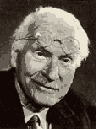Carl Jung

Carl Gustav Jung (1875-1960), while influenced by his mentor Sigmund Freud, charted a distinct course in his understanding of the unconscious. Unlike Freud, who interpreted the unconscious primarily in terms of primal instincts, suppressed desires, and sexual impulses, Jung perceived it as a deeper, more spiritual realm. He introduced the idea of the "collective unconscious," a reservoir of shared ancestral experiences, myths, and archetypes that resonate across cultures and eras.
Jung's divergence from Freud wasn't limited to their interpretations of the unconscious. Their differing views on dreams, among other disagreements, eventually led to a notable rift between the two intellectual giants. While Freud often viewed dreams as manifestations of repressed desires, Jung saw them as symbolic pathways to individual self-realization and a means to tap into universal symbols and archetypes that bridge humanity.
Carl Jung posited dreams as a bridge, a conduit between the conscious mind and the vast expanse of the unconscious. Instead of viewing dreams as masks or veils concealing true emotions (as some traditional interpretations might suggest), Jung saw them as transparent portals. To him, dreams weren't enigmas to be unraveled but illuminating beacons providing insights into the self.
Jung believed that dreams harbored messages tailored for the individual's growth, self-realization, and individuation. They weren't mere random mental constructs but purposeful narratives offering wisdom, guidance, and sometimes, solutions. By interpreting these nightly visions, one could uncover answers to dilemmas faced in the waking world, achieve a deeper understanding of oneself, and journey towards a state of holistic integration and wholeness.
Carl Jung's exploration into the psyche delved deep into the interplay of contrasting elements. Central to his understanding is the "ego" – that conscious part of one's identity that one presents to the world, the "I" that one recognizes. It's the center of one's conscious thoughts, memories, and emotions.
Balancing the ego, in the vast realm of the unconscious, is its counterpart: the "shadow." In Jung's framework, the shadow isn't simply the opposite of the ego but a repository of the facets of oneself that have been pushed aside, ignored, or suppressed. These might be qualities, desires, or memories deemed by the individual as incompatible with their conscious identity—traits that they might judge as undesirable, embarrassing, or even shameful.
This dichotomy reflects Jung's broader philosophy that dualities exist within the psyche. Just as there are day and night, light and shadow, there are aspects of oneself that shine brightly in the conscious mind and others that lurk, often unnoticed, in the background. The shadow, with its primitive instincts and unrefined nature, is not necessarily malevolent but rather a crucial part of the complete self. Engaging with and integrating the shadow is vital for achieving a holistic sense of self, or what Jung termed "individuation."
Freud Topics:
Jungian Dream Interpretation
Carl Jung's Archetypes